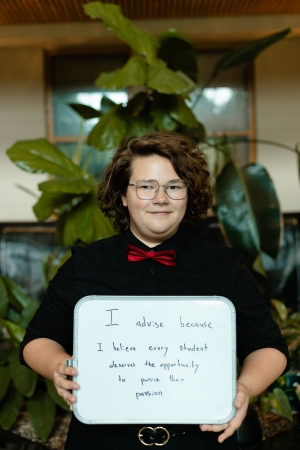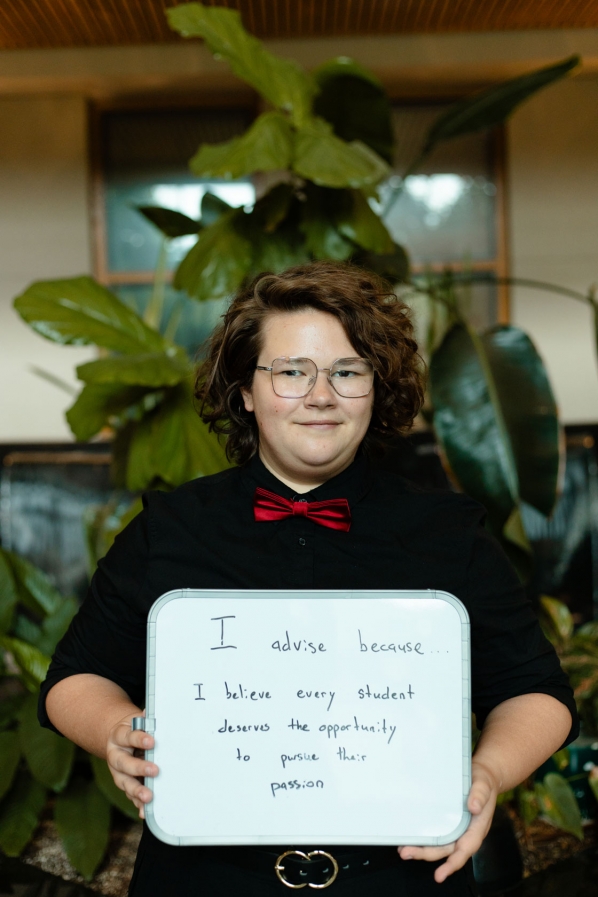I grew up as a “trailer park kid”. With that statement, many images come to mind. Some are stereotypical of what is shown in movies, news headlines, and the history surrounding manufactured housing. Unfortunately, many of those are negatively associated. I did, and still do not, hold the same images. Mine are filled with memories of always having someone to ride bikes with until it got dark, always having someone’s dog greet you on the walk home, and Ms. Shirley’s potato candy every fall.
I was unaware of how much my housing situation impacted how others viewed me. It was not until a brave class member of mine, and fellow “trailer park kid”, pointed out how we were being excluded from our own education. An assignment that all students had for our English class was to write about something that happened to us over the weekend. After topics were shared, an example would be picked to adjust verbs and sentence structure.
“How come you never call on us to share?” It was my unafraid-of-conflict friend who asked the question. I had never noticed it, but he was right. This teacher never called on any of the “trailer park kids” to share. She didn’t even pick students who lived in a park different from my own. “Well, many of your stories are just inappropriate for school. No one can relate to them. It’s best if we stick to something we all can.” My friend responded in a way that got him landed in the principal’s office, but this sparked something in me. I started to pick up on when my curriculum alienated my experiences.
I would score poorly on budgeting assignments because they weren’t realistic for a family-of-four despite them being based on my family-of-five. Math problems would be solved with the whole collective of moms and dads from the trailer park but be counted wrong because of the method used to get the answer. Required interviews that we had to conduct would be marked down if we spoke with an elder in the park because they were not seen as a “recognizable or contributing member of the community”. In addition to math and science, I was slowly learning that my lived-experiences were not welcome in the educational setting.
On the other hand, my education began to alienate me from my low-income family. Neither of my parents were able to pursue education beyond middle school. Despite them being supportive of my education, they viewed my speaking about the opportunities school provided as undermining what they could provide as parents. This resulted in conversations about school being non-existent and attendance at school events by my parents to be quite similar. I wish I could say that at the time I understood that this was not normal. But the switch that was made every morning and afternoon to avoid ridicule from either side, school or family, became the standard for my everyday life.
When the discussion of college came around, it was a difficult one. The question wasn't just if I wanted to go, it was of which life I was willing to sacrifice: the one where I have a relationship with my family or the one where I pursue what I am passionate about. There was never an option that felt right to me. I knew, though, that if I did not take the chance to study the musical field that I would regret it.
Similar challenges arose in my undergraduate degree. I felt more capable of approaching these situations throughout my program as I began to realize that other people faced the same type of alienation. Programs like GEAR UP and McNair Scholars made me feel my experiences should, and deserve, to be shared with those in higher education. I found a community of people that I could relate to who had to face the same decisions I did. In my graduate degree, I learned that even more music educators are trying to adjust their curriculums to incorporate low-income experiences. Although it is a slow process to adapt over 300 years of standardized music education, I am so glad that I now get to be a part of that change.
Advising is just another small step in doing so. Students should never feel like they have to choose between their family and education. They should feel comfortable and proud sharing their “trailer park kid” memories and using them to help guide their pathways. I am actively helping to change the scenario that students are facing, and I am so humbled to be doing so. Something as simple as explaining a financial term can change a student's, and even a parent’s, whole perspective on higher education. The time and action it takes to consider the types of backgrounds students may have is crucial to helping all students succeed. I hope to be the change that eliminates the question my strong-willed friend had to ask: “how come I never get to share?”
Written by Becka Dulaney, adviser at Franklin High School

